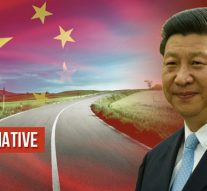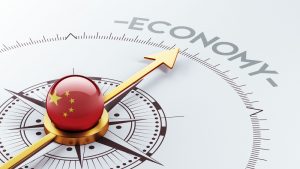
China: A status quo penetrator or inexplicit assertive player?
Economy 23 April 2017As one of the most influential and dynamic states in the modern world, China`s initiation of new philosophy in external affairs has drew attention of the world`s public. Recent crises occurring in the Korean peninsula and military tensions in the South China Sea should have dramatically triggered more assertive Chinese foreign policy. But that did not occur in practice.
China`s demonstrated restraint in foreign policy towards its nearest neighbourhood, expressing at the same time, very diffluent interest towards the markets and business within the Western European countries. Why is China focussed to so-called One Belt, One Road (OBOR) policy towards its west, instead of being a more assertive player within its near neighbourhood? Does China`s global strategy look like a detour in resolving the accumulated problems on its borders or it is rather an excuse for not being able to tackle with the new challenges?
With an extensive economic and financial development, China has become an economic superpower in the last several decades. The biggest challenge for China now is teetering between the decisive status quo economic penetrator to the European continent or an intertwined assertive policy and being the regional relevant actor.
One Belt, One Road initiative, recently introduced by the Chinese government seems to be the most viral part of being a status quo penetrator. This initiative aims at progressive penetration into the European open market of goods and services. The megaproject is supposed to be followed by a progressive development of transportation infrastructure from Chinese western borders to the all major centres in predominantly Western Europe.
The mainland goods shipping will go through the Eurasian space and Eastern European countries, and that is why China established the “16+1” initiative compounding of 16 countries of Central and Eastern Europe (CEEC) accompanied by China. The format is formalized in 2012 when the first annual Summit of the initiative was held in Warsaw.
Followed by the ones in Bucharest (2013), Belgrade (2014), Suzhou (2015) and Riga (2016), the initiative has evolved into a higher cooperative forum supported by the permanent Secretariat with Secretary General, national coordinators in sixteen Central and Eastern European countries, as well as with the research fund. The whole “belt and road” geographic area countries and projects are financially supported with the newly founded Asian Infrastructure and Investment Bank (AIIB) with its headquarters in Beijing.
For instance, the Chinese side demonstrated its strong commitment to southern part of the “16+1” initiative, allocating some $10 billion package for Western Balkan countries as well as for Romania, Slovenia and Bulgaria. Also, China is being very supportive in infrastructure development of the Eurasian space. China invested last year $8 billion in creating the preconditions for the feasibility studies for projects such as railway corridors, logistic management and high way networks.
With the highest investor in the USA state bonds, China offered high level of trust into the US financial system. After the big global economy crisis occurred in 2008, China has withdrawn part of its national bonds.
All latter are reasons for many analysts to claim that China`s economy is living on a “borrowed time”. They say that this mega economy is not able to provide a self sustainability. In context of the OBOR initiative, the least important thing for China now is to spend the money
China appears to be one of the most rational actors when it comes to the current tensions in the South China Sea and in North Korea. In the last several days, China became very assertive player in reactions towards the North Korean missiles launching. Its OBOR initiative will seemingly be lost if this superpower will not focus itself to the right sides.
As a revival of old “silk road” project, this initiative is a complex, involving many stakeholders with different aims and scopes to participate within the project. It also remains open to see how the Chinese diplomacy will be able to tackle with various interests exposed by many potential partner-countries within the new “silk road”.

www.varchevbrokers.com


